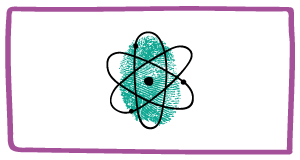A strong focus on science is the key to innovation
Achieving the UAE’s goal of becoming a leading knowledge economy requires a greater focus on fundamental sciences and the cutting-edge technologies they support. These include the Internet- of-Things, medical devices, new drugs and novel smart materials. Science and engineering are complementary, but both are unable to advance without the other’s continuing progress. This is often forgotten by those who believe that engineering alone produces profitable innovations required by competitive knowledge economies. Countries that have already made the knowledge economy journey, like Singapore and South Korea, enjoy world-class status in basic sciences and depend on human and intellectual capital for their competitive economic success.
As Interim Dean of the College of Arts and Sciences at Khalifa University of Science and Technology, I am tasked with building up fundamental sciences across our three campuses - what were previously Khalifa University of Science, Technology and Research, the Masdar Institute of Science and Technology and the Petroleum Institute. As our university advances in its goal of supporting development of human and intellectual capital across the UAE’s targeted sectors, we must ensure that the basic sciences that are foundational to technical innovation are not neglected, as they often yield the biggest breakthroughs.
Basic research, sometimes also known as pure or fundamental research, is where we explore the boundaries of what is presently known and understood to disrupt the status quo by pushing back those boundaries. Fundamental research has produced many of mankind’s greatest innovations, like electricity, lasers, satellites and solar energy capture. The transformative impact of science on mankind is evidenced by the fact that only a small number of 584 Nobel prizes awarded over the past 117 years have gone to engineers.
In the UAE there is (by international standards) an unusually strong focus on career-tracks such as business, law and engineering. These fields are, of course, necessary, but this makes it challenging to inspire and guide young people into careers as scientists. Many students aspire to be inventors, entrepreneurs or lawyers but few want to be a working scientist as they are unaware of the opportunities offered by exciting fields like biotechnology, computer science and materials science, which right now are crafting the world of tomorrow.
To those of us who have dedicated ourselves to the advancement of science, its value and scope is clear. Scientists explore the boundaries of what is known and expand our understanding beyond these limits. Their work is critical for the advancement of society. Scientists need to be ambitious, focused, and determined to solve problems. It helps also to be logical and have wide-ranging knowledge and abilities, to enrich one’s mental toolbox. Science has become ever-more interdisciplinary in recent decades, which means it draws from two or more branches of knowledge. Therefore, scientists need to be fluent in many concepts and be able to work collaboratively in teams that span traditional disciplines. For example, I am a biochemist who started my career in the international biotechnology and food industries who has carried out collaborative research with biologists, chemists, physicists and toxicologists.
If you pursue science, you can expect to have a dynamic career, full of constant change and rich promise. Science is constantly evolving and advancing, and scientists and their understanding and abilities, must evolve with it. This makes being a scientist exceptionally intellectually engaging.
In the UAE in particular, scientists know that their work is particularly needed. The country has an ambitious goal of featuring among the world’s most innovative countries by 2021, and has targeted seven science-dependent sectors for its economic strength -- education, clean and renewable energy, water, space, health, technology, and transportation. Additionally, scientists will play key roles in addressing some of humanity’s most pressing challenges -- global climate change, water scarcity, food security, public health, and protecting the environment.
That is why Khalifa University of Science and Technology has made science a key focus for its development, and has a road map to develop innovative science programmes. We will soon be establishing a medical school, leveraging our excellence in biotechnology and genomics. This is expected to lead into a stronger focus on life sciences, including human genetics and stem cell research, supported be chemists, physicists and engineers. Our aim is international excellence in science, technology, and medicine because we recognise that achieving global leadership in the UAE’s target industries, and solving mankind’s critical challenges, will require us to exploit synergies across these vital disciplines.
Without a deep appreciation and understanding of science, and the constant challenging of its boundaries, we will not be able to meet immediate national or worldwide challenges. Science is the foundation upon which the UAE and the world must base its future and, for that, we must make it a priority for our wider society, not just for universities or the education system.
Dr David Sheehan is Interim Dean of the College of Science at Khalifa University of Science and Technology.






